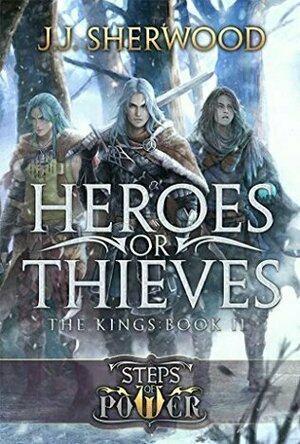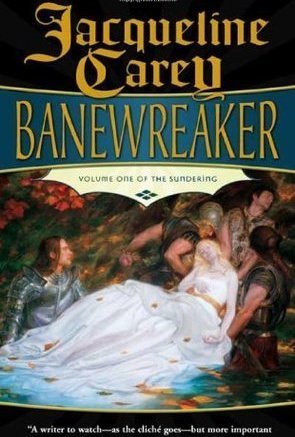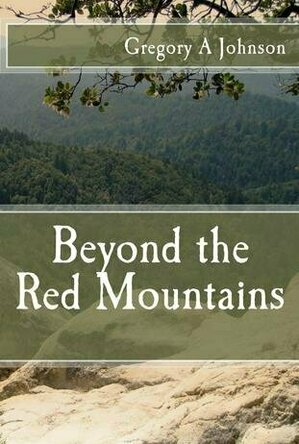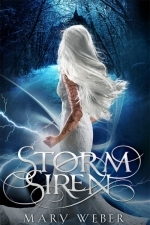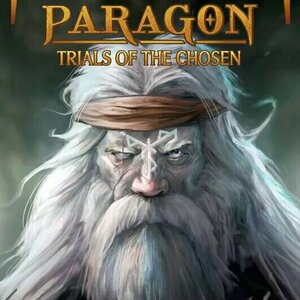
Paragon: Trials of the Chosen
Tabletop Game
Set in a fantasy world beset by warring demigods vying to join the eternal pantheon, Paragon: Trials...
Phil Leader (619 KP) rated Heroes or Theives (Steps of Power #2) in Books
Nov 14, 2019
Once again the story doesn't follow the usual fantasy template. Where in the first book Saebellus was depicted as the main enemy and villain of the piece here shades of grey are cast on his character and his actions. Jikun himself is struggling to come to terms with his situation and is seemingly willing to risk everything to have some sort of revenge. Selemar is playing a risky political game, trying to invoke unrest whilst also acting as the head of the corrupt council.
Sherwood performs a tricky balancing act well, with so many stories to move forward that are only tangentially connected but each is handled effectively and told with an eye to both detail and character that keeps the reader involved in each of the plot threads.
As with the previous book there is a fair amount of political intrigue, although most is away from the claustrophobic council but is just as deadly for whoever is going to be on the losing side. The characters are constantly developing and the new characters introduced are perfectly judged and naturally intertwine with the story as it moves forward.
With this second work continuing in the excellent style of the first this series is a must read for any lover of fantasy.
Content rating: Some sexual references and language and some violence

Siege Line
Book
Myke Cole continues to blow the military fantasy genre wide open with SIEGE LINE, an all-new epic...
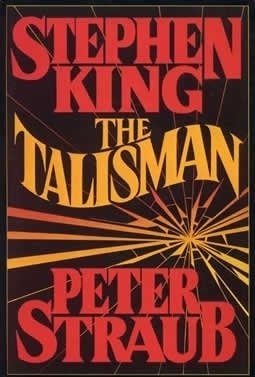
The Talisman
Book
On a brisk autumn day, a twelve-year-old boy stands on the shores of the gray Atlantic, near a...
Black House
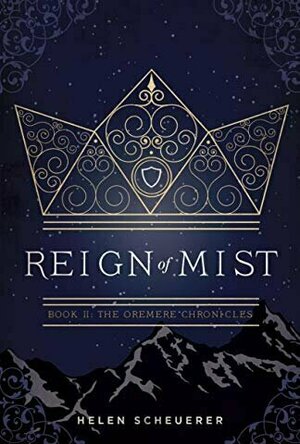
Reign of Mist (The Oremere Chronicles #2)
Book
The realm’s darkest secret is out. The cruelty of the capital and the power-hungry King Arden...
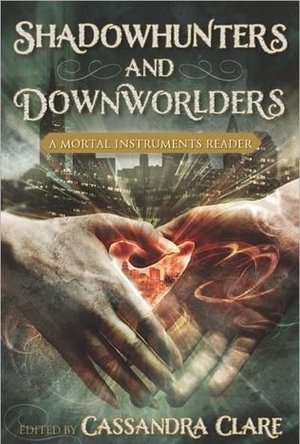
Shadowhunters and Downworlders: A Mortal Instruments Reader
Cassandra Clare, Rachel Caine, Holly Black, Sarah Rees Brennan, Robin Wasserman, Kendare Blake, Michelle Hodkin, Sara Ryan, Kami Garcia, Sarah Cross, Kelly Link, Gwenda Bond, Kate Milford, Diana Peterfreund and Scott Tracey
Book
Cassandra Clare’s Mortal Instruments series, epic urban fantasy set in a richly imagined world of...
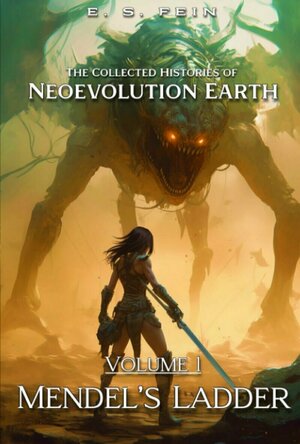
Mendel's Ladder: A Grimdark Scifi Epic
Book
Outlast. Outgrow. Outlive. In the ashes of Earth, evolution is the ultimate weapon. Inspired by...
Mandy and G.D. Burkhead (26 KP) rated Banewreaker in Books
May 20, 2018
Banewreaker, the first book in Jacqueline Carey’s two-part volume The Sundering, will probably not change any opinions in this respect, then, as it’s sweeping high fantasy to the core. This, as it turns out, is both its greatest strength and its greatest weakness.
There are some reviews out there that laud Banewreaker as a masterful examination of subjective viewpoints in an epic fantasy turned into a human tragedy by a simple change of perspective. And they are absolutely correct.
There are other reviews, however, that call the book out as a heap of all of the stalest fantasy clichés piled one atop the other in a confusing and pretentious jumble with a shellacking of purple prose for good measure. And they are also absolutely correct.
Let me explain.
For starters, it would be inaccurate to say that this story is full of clichés. This story is clichés. This story is every familiar and used-up trope you would expect from a high fantasy, all of those details that have been done to death in thousands of other versions until almost nothing that happens seems original anymore.
This is what’s going to turn off a lot of people. But the thing is, Banewreaker has to be this way. It wants the reader to look at all of the things that they’ve come to expect from a fantasy epic and then, by shifting the narrative focus, realize that all of these beloved tropes are actually, when you think about it, tragic as hell.
In other words, it’s Lord of the Rings from Sauron’s point of view.
It’s not a riff, though. It’s not goofy like most of the stuff I go in for. It takes its subject just as seriously as the stories that it’s mirroring, and this is what makes the whole story ultimately so gripping and so moving.
The story starts out like many stories of this magnitude, with exposition stretching back to the Dawn of This Particular Creation. In this case, we have a protogenos world god named Uru-Alat who died and gave rise to seven smaller godlike beings called Shapers. First comes Haomane, who becomes the Lord of Thought and sets himself up as head honcho for this ensuing pantheon. Second is Arahila, the Basically a Love Goddess; and third is Satoris, whose purview was “the quickening of the flesh,” which is high fantasy speak for sexy times. Four more Shapers come after this who, for the sake of brevity, we’ll be glossing over.
To summarize the important godly exposition, the Seven Shapers set about shaping the world to the surprise of no one. Haomane creates elves (here called Ellyl, but if you’ve ever even looked at a fantasy, you know that they’re the elves here), Arahila creates humans, and Satoris doesn’t create anything because he’s busy hanging out with dragons and learning their wisdom. Satoris grants his fleshy quickening to the humans but not the elves, because Haomane didn’t want his elves to do that. Then Haomane decides he doesn’t want the humans to do that either, but Satoris refuses to take the gift away again. Conflict escalates, god wars ensue, and the world splits into two continents, with Satoris ostracized from his brethren on one and the remaining Shapers on the other. By the time the dust has settled, Satoris is scarred and burned pitch black, living in a mostly dead land thanks to Haomane’s wrath, but with a dagger in his possession that is the only weapon capable of killing any of the Shapers.
The story itself picks up thousands of years later, with Satoris as the Satan/Sauron stand-in living in a forbidding land surrounded by classically evil things like trolls, giant spiders, and insane people. Since Haomane is the head god, the rest of the world believes Satoris to be a terrible figure of evil and betrayal, while Satoris’s few allies know him as a pitiable and misunderstood figure who only ever wanted to honor his word and do right by his own sense of morality rather than the dictates of his elder brother god king.
From here the plot becomes the typical Army of Good vs. Army of Evil adventure, but with the protagonistic focus on Satoris and his allies. His trolls we see not as a mindless horde but as a simple, honorable people who happily serve their lord because he happily serves them right back. The mad individuals inhabiting his fortress are castaways from normal society with nowhere else to go. And the giant spiders just happen to live there and be bigger than normal, with no sinister intentions beyond that.
And just like that, by actually showing us the home life of the ultimate in evil fantasy tropes, we see how easily one side’s view of evil is another’s view of good. In doing so, Banewreaker becomes perhaps the first sweeping fantasy epic with no real bad guy, just two sides of an unfortunate conflict. Both sides have their likeable characters, both sides seem from their view to be in the right, and pretty soon you, as the reader, will stop cheering for either one, because whenever one person that you like succeeds it means that another person whom you also like is failing.
In fact, the closest thing that this story has to a clearly-labeled “evil” character is the sorceress Lilias, and even then, she’s not evil so much as a woman who has done some bad things for completely understandable reasons. Lilias, in fact, is one of the most pitiful characters in this whole saga of pitiable characters, with her fears and attachments closely mirroring those of most readers, only amplified by her immortality and magical powers. She is afraid of dying. She wants to be more in the grand scheme of things than just another man’s wife or another country’s momentary ruler, both of which would just be tiny moments in a long history. She likes her youth. She likes having pretty things and pretty people around her. And from her interactions with her dragon mentor and apparently only friend, Calandor, we see that she is also capable of intense affection and even love just as she is capable of indulging in self-centered self-interest that, if not particularly a good trait, is also one that she is not alone in possessing.
Banewreaker, then, is a story with a large cast of characters but very few actual heroes or innocents as well as very few outright villains, which is exactly what it sets out to be. Those who love it and those who hate it both seem to blame this quality in particular for their feelings. The biggest complaint leveled against it (that I have read, anyway) is that the people we should be rooting for do not deserve our sympathy, while the people we should be rooting against are more misguided and unwilling to see things in another light than deserving of our scorn.
This is true. But if it’s a flaw, it’s an intentional one. And if it makes you feel like you shouldn’t be cheering for either side at all in this conflict, that’s the point. This is a story of clichés, yes, but it has something that it needs to say about these clichés and, in doing so, about the subjective and impossibly nebulous quality of morality in general.
In short, here again is another fantasy story about the Forces of Good wiping out an entire nation dedicated to their “evil” enemy. And as the story points out, even if you believe in that cause, you’re still wiping out an entire nation of people. No way is there not a downside to that. Seeing things in a black-and-white morality just means crushing a whole lot of important shades of gray underfoot.
Whether or not you like Banewreaker, then, depends in large part upon how much you realize that Carey as an author is being self-aware. As someone who read and still hasn’t stopped being awed over her Kushiel series, I can’t claim complete objectivity in this area, because I came to Banewreaker already in love with her. I can say, however, that unless you have an intense and searing aversion to ornate and sweeping style, this book is worth any fantasy-lover’s time – especially if you’ve ever felt a pang of empathy for all of the poor villainous mooks that fantasy heroes tend to mow down without a thought because they were the wrong kind of ugly.
Phil Leader (619 KP) rated Beyond the Red Mountains in Books
Nov 8, 2019
Kelvin's first clue that all might not be as he has been taught when he discovers an old book warning about a mysterious figure called Luther who seems to have been carefully erased from the history of Triopolis. And it is clear that he is not the only one who is aware of secrets.
Elizabeth is the princess of Westville, the centre of a civilisation that has conquered every other city in the world - there are not many. She is locked in a loveless and arranged marriage but is determined to find some way out.
When fate brings Kelvin and Elizabeth together they realise there is a lot more going on than the elders of either city would have them believe. Before long they are on the run, desperately trying to save themselves and their cities from dark forces. They have allies and enemies, but telling one from the other is only half the battle...
Beyond the Red Mountains is a fantasy novel that is of epic proportions but avoids all the tropes and cliches of 'epic' fantasy. There isn't really a great quest, there isn't a dark lord threatening all of existence. All of the characters seem very real and all have their own reasons for their actions, whether these are with or against the main protagonists.
There are many twists and turns and the story doesn't let itself get too bogged down in long conversations or descriptions, letting the story unfold to reveal the narrative and the history. Not every decision Kelvin and Elizabeth make is the right one, but it is always made with the best intentions. The characterisation really does stand out, with a lot of care taken to make the characters believable. I was particularly struck by one of the characters who are opposed to Kelvin and Elizabeth but the reader ends up feeling enormous sympathy for.
There is a (perhaps inevitable) romantic connection between Kelvin and Elizabeth but this is well played and unfolds very realistically and is never overplayed or overstated. Some of the keepers of ancient wisdom they meet are perhaps a little to forthcoming about forbidden knowledge but this means the story doesn't slow but can take the next step so this can be forgiven.
The prose is very simple, clearly aimed at a young adult audience, although some of the themes and scenes are perhaps not for the very young end of the spectrum. As an introduction to lengthy fantasy tales this works very well though. The ending is a real cliff hanger and definitely makes me want to read the sequel.
There were a few more spelling mistakes and incorrect (or plain missing) words in the eBook version I read but this wasn't really a problem, it was always clear what was intended.
I would recommend this book to anyone who wanted to tackle a human-scale epic fantasy novel with a difference, one that cared about all of its characters, even the ones nominally pitched against the 'heroes'.
BookwormMama14 (18 KP) rated Storm Siren (Storm Siren #1) in Books
Jan 2, 2019
Epic battles, devastating loss, search for purpose, simmering romance, bad guys that are the most vicious sort of people and good guys that will sacrifice everything for the good of the people. Nym has totally swept me into her world and I am looking forward to reading the next books in the series (which I was SMART this time around and placed all three books on hold at the same time at my library).
While the elements of faith are not blatantly in your face. I do recognize the threads weaving through the story. The constant battle between good and evil, the enemy being a deceiver, the good sacrificing everything. But maybe most importantly is seeing what is inside ourselves...and recognizing it for the GIFT it is rather than a curse.
If you enjoy Young Adult Fantasy with clean content and decent morals, you should definitely check this series out! Stay tuned for my thoughts on the remainder of the series.
I borrowed a copy of Storm Siren from my local library. I was not required to write a review. All opinions expressed are mine alone.
